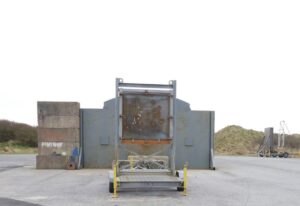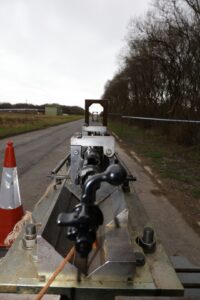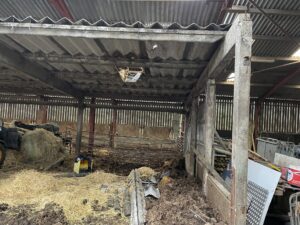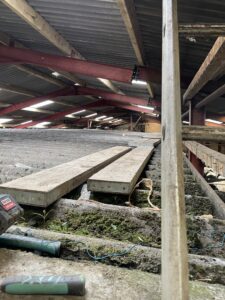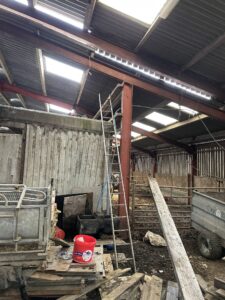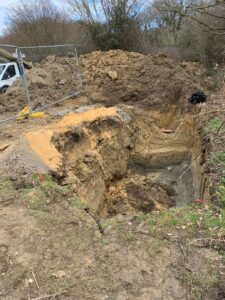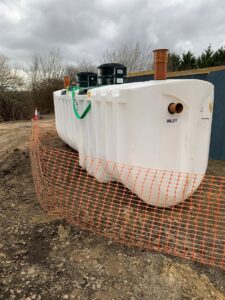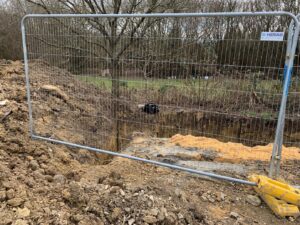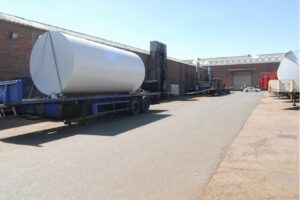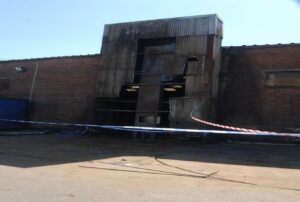Paddleboard tour leader jailed over deaths of four people
A paddleboard business owner has been jailed for 10 years and six months for gross negligence manslaughter following the deaths of four people in 2021.
Nerys Lloyd, 39, from Aberavon, who was the owner and sole director of Salty Dog Co Ltd, was charged with the gross negligence manslaughter of Paul O’Dwyer, 42, Andrea Powell, 41, Morgan Rogers, 24, and Nicola Wheatley, 40, following their tragic deaths following the incident in Haverfordwest Town Weir on 30 October 2021.
She admitted all four charges on Wednesday, March 5, 2025, along with one count under the Health and Safety at Work Act.

At her sentencing, the court heard how on 30 October 2021, Lloyd with the assistance of Paul O’Dwyer planned a trip organised through Lloyd’s business.
However, there had been heavy flooding, and severe weather warnings were in place, which were not heeded by Lloyd. The river was running fast, and the weir was in an extremely hazardous condition. Lloyd did not check the weir or provide a safety briefing to the participants nor inform them of the presence of the weir. Despite this, Lloyd facilitated the paddleboarders entering the water and she led the group along the river.
As the group approached the weir, apart from Lloyd, all the participants were pulled over the top into its base and became trapped before being ejected from the weir. Four of the participants survived.
Instructor Mr O’Dwyer, who initially exited the river safely, re-entered the water in an attempt to rescue the others, but was immediately dragged over the top. The four victims died as a result of drowning/immersion.
A joint investigation by Dyfed-Powys Police and HSE found that Lloyd was not correctly qualified to lead a stand-up paddle board river tour.

Guidance and training for water sports instructors and participants is available from national sport governing bodies including the British Stand-Up Paddle Association, British Canoeing and the British Kite Surfing Association. Anyone organising adventure activities for under-18s must be licenced by the Adventure Activities Licencing Authority.
HSE Inspector Helen Turner said: “I would like to express our sincere sympathy to the families of those who died, and to the survivors whose lives are indelibly affected.
“Four lives were needlessly lost and survivors traumatised by their experience at Haverfordwest weir.
“Nerys Lloyd was solely responsible for the decision to enter the water while the river was in flood, and for the attempt to take even inexperienced paddlers over the weir. This was completely reckless and the risk of death was foreseeable.
“The victims placed their trust in Lloyd to deliver a safe and enjoyable paddle, but through her incompetence, carelessness and complacency she failed to plan or assess the obvious risk at the weir or to take even basic safety measures. By not discussing the hazards on the route Lloyd robbed the participants of the opportunity to make a reasoned decision on their own participation on the day.
“Health and safety law is not a barrier to adventurous activities, which are enjoyed by people every day in safety. Organisers must take proportionate action to recognise and manage real risks.”
Senior Investigating Officer Detective Superintendent Cameron Ritchie, of Dyfed-Powys Police, said: “Firstly, I would like to reiterate my heartfelt sympathies to the families of Paul, Andrea, Morgan and Nicola.
“The incident that took place in Haverfordwest on October 30, 2021, was an extremely tragic case resulting in the completely avoidable deaths of four people. We heard in court how this incident devastated four families, and we hope that lessons will be learned that prevent this from ever happening again.
“This has been a complex and extensive investigation and I’d like to thank my colleagues at Dyfed-Powys Police, The Health and Safety Executive and the Crown Prosecution Service for their professionalism and diligence to secure this outcome.”
The HSE investigation and enforcement was supported by HSE enforcement lawyer Kate Harney and Paralegal Officer Helen Jacob.
Notes to editors:
- The Health and Safety Executive (HSE) is Britain’s national regulator for workplace health and safety. We are dedicated to protecting people and places, and helping everyone lead safer and healthier lives.
- More information about the legislation referred to in this case is available.
- Further details on the latest HSE news releases is available.
- HSE guidance on managing health and safety for leisure and sporting activities can be found at Basics for leisure activities.
- Guidance on Adventure Activities Licensing can be found at Adventure activities licensing – HSE.
- HSE does not pass sentences, set guidelines or collect any fines imposed. Relevant sentencing guidelines must be followed unless the court is satisfied that it would be contrary to the interests of justice to do so. The sentencing guidelines for health and safety offences can be found here.

